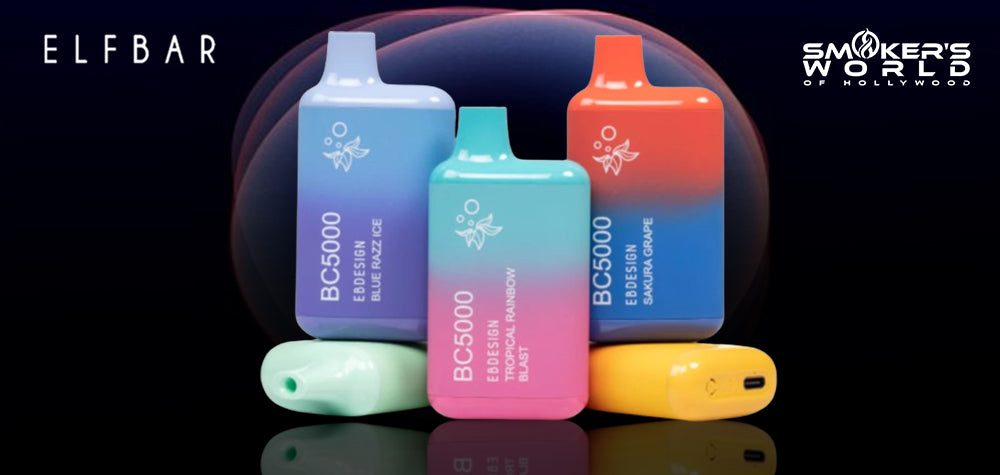Chinese disposable e-cigarette manufacturer Elfbar has intensified its global efforts to combat counterfeit products, particularly in South Africa. This initiative is part of a broader strategy to address the proliferation of fake vaping products that pose health risks to consumers.
Operation Against Counterfeits in South Africa
In July 2024, Elfbar collaborated with South African regulators to conduct significant raids in Johannesburg and Cape Town. These operations resulted in the seizure of approximately 3,600 counterfeit and substandard vapes, primarily imitations of Elfbar's older, discontinued models. The company issued warning letters to over 15 retailers, with 13 stores agreeing to stop selling these infringing products. In total, these stores surrendered 1,100 counterfeit vapes, which Elfbar plans to destroy.
Lauren Huang, Elfbar's general manager for the Middle East and Africa, emphasized the company's commitment to safety and quality in the vaping industry. She stated, "Counterfeits place in jeopardy the dedication of ours and the whole industry's to harm reduction through innovation." Huang highlighted the dangers posed by fake vapes, which often contain untested and potentially harmful substances, exposing consumers to serious health risks.
The raids in South Africa were a significant step in Elfbar's ongoing efforts to combat counterfeiting. The company has been actively working with authorities in various countries to identify and shut down operations involved in the production and distribution of fake vaping products. These collaborative efforts have yielded positive results, with Elfbar successfully removing thousands of counterfeit items from the market.
Global Crackdown on Counterfeit Products
Elfbar's crackdown is not limited to South Africa. Since mid-2021, the company claims to have shut down over 220 businesses involved in the illicit trade of counterfeit vaping products, including several manufacturing operations. This global initiative reflects the company's dedication to maintaining high safety and quality standards in the vaping market.
In an effort to help consumers identify authentic products, Elfbar has introduced security labels on its packaging. These labels feature a scratch-off panel revealing an 18-digit serial number, which can be verified on the company's website, along with a QR code that can be scanned for verification. However, the effectiveness of these anti-counterfeit measures is questionable, as counterfeiters have been known to create fake QR codes that mislead consumers.
Despite these efforts, the challenge of combating counterfeit vaping products remains significant. Counterfeiters are often quick to adapt to new security measures, developing more sophisticated methods to replicate authentic products. Elfbar recognizes that a multi-faceted approach is necessary to effectively address this issue, involving collaboration with regulators, retailers, and consumers.
The Broader Context of Vaping Regulation
The rise of counterfeit vaping products is part of a larger issue facing the vaping industry globally. Governments and health authorities are increasingly concerned about the health implications of vaping, particularly among youth. In the United States, for instance, Elfbar has been linked to a significant increase in vaping among teenagers, with federal data indicating that it is the most popular disposable e-cigarette brand among this demographic .Regulatory bodies, such as the U.S. Food and Drug Administration (FDA), have issued warnings to retailers selling unauthorized e-cigarettes, including Elfbar products. The FDA's ongoing efforts to regulate the vaping industry have led to increased scrutiny and enforcement actions against companies that fail to comply with safety standards.
The regulatory landscape surrounding vaping is complex and rapidly evolving. While some countries have embraced vaping as a harm reduction tool, others have taken a more restrictive approach, banning or heavily regulating the sale and use of e-cigarettes. This lack of global consensus has created challenges for companies like Elfbar, as they navigate different legal frameworks and consumer preferences in various markets.
Conclusion
Elfbar's recent operations in South Africa highlight the company's proactive stance against counterfeit products, reflecting a commitment to consumer safety and product integrity. As the vaping industry continues to grapple with the challenges posed by counterfeit goods and regulatory scrutiny, Elfbar's actions may serve as a model for other companies facing similar issues. The ongoing battle against counterfeit vaping products underscores the importance of vigilance in ensuring that consumers have access to safe and authentic products in the marketplace.
Looking ahead, Elfbar and other vaping companies must continue to work closely with regulators, retailers, and consumers to combat the proliferation of counterfeit products. This may involve further investment in anti-counterfeiting technologies, enhanced supply chain controls, and consumer education campaigns. By taking a proactive and collaborative approach, the vaping industry can help ensure that the benefits of harm reduction through vaping are realized while mitigating the risks associated with counterfeit products.

